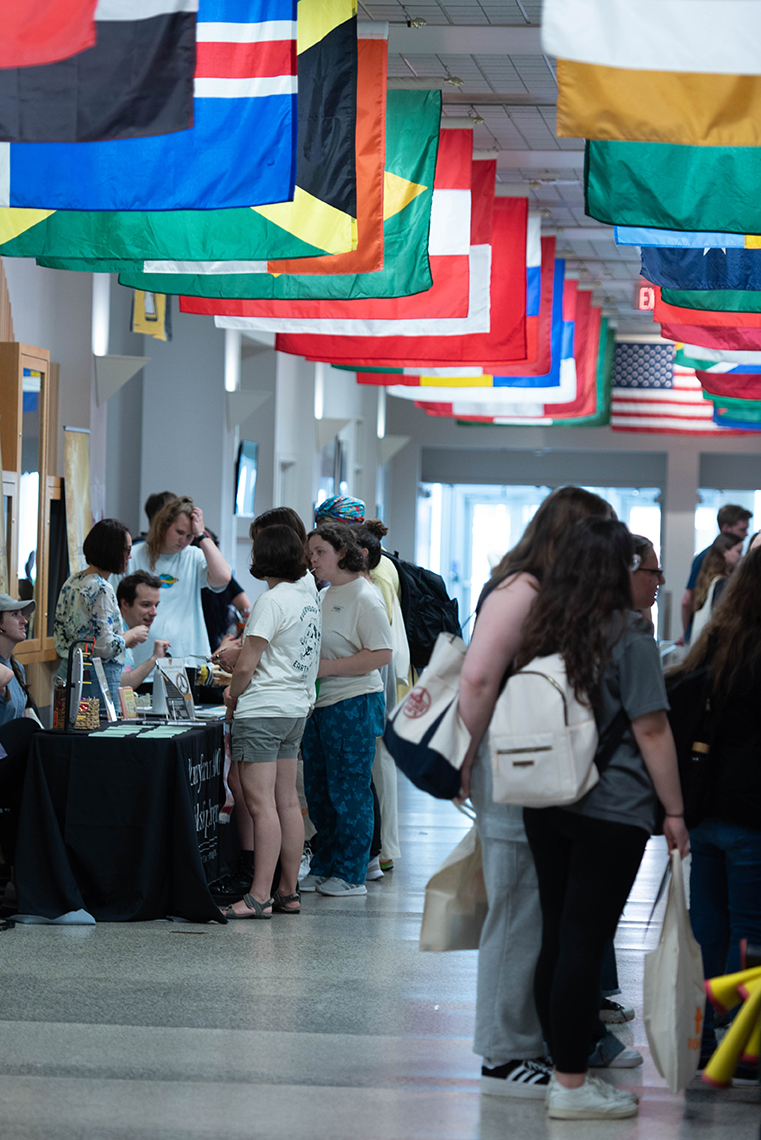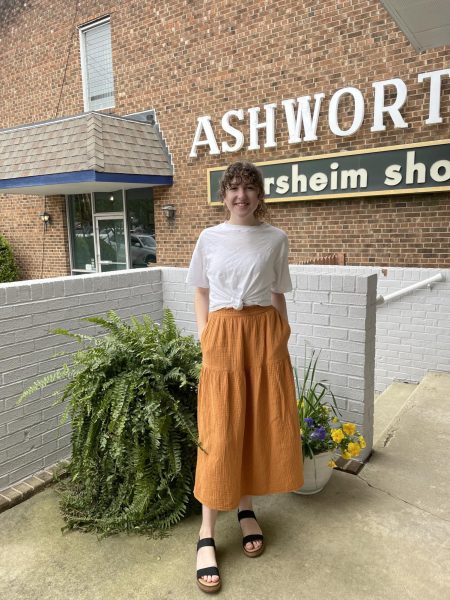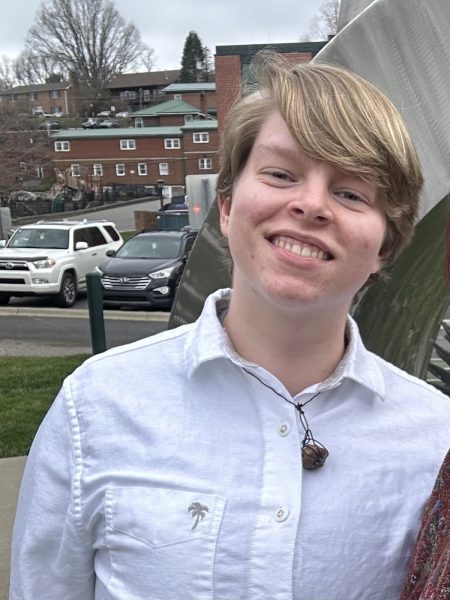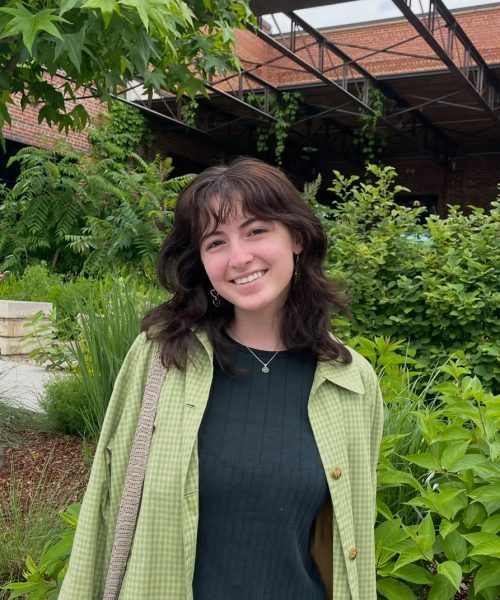On a dreary, rainy afternoon, the Plemmons Student Union came alive as students talked with local businesses, student groups and campus clubs about sustainability at App State for the annual Earth Day Expo event. Twenty tables lined the student union, each representing one of the 17 U.N. sustainable development goals.
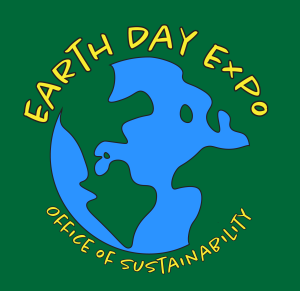
The Office of Sustainability has hosted the Earth Day Expo for many years, but this is the second time it has presented the SDGs to highlight all of the work App State’s campus and campus partners are doing. Coordinator of the event and Sustainability Outreach Director Lanie Karstrom shared that the idea was for it to still be the fun expo event it’s been in the past, but for part of the structure to be education-focused.
“Using an educational tool as in the U.N. SDG is something really easy to translate the work that we as App State community members and students see every day and probably take for granted,” Karstrom said.
To incentivize students to go to a majority of the tables, a free t-shirt was offered if students went to 12 of the 17 SDG tables. At each table, they were given a run-down of the work that each group does and were given opportunities to volunteer, join clubs or go to events that deal with sustainable practices.
Laura England, a practitioner in residence for the Department of Sustainable Development and associate director of the Quality Enhancement Plan, represented the climate action goal. The table she was a part of shared what the new QEP is for students.
According to Appalachian Today, “an effective QEP reflects and affirms a commitment to enhance overall institutional quality by focusing on an issue that a university considers a priority for improving student learning outcomes and success.”
The new QEP is called “Pathways to Resilience” and is the university’s five-year climate literacy initiative. The initiative is going to build a much more in-depth climate curriculum across general education and upper-level coursework in majors across campus.
“We have students, faculty and staff that are a part of our committee and are advising us, and we are excited to hit the ground running in the fall,” England said.
Another campus sustainability initiative was shared by Stan Chamberlain, the director of residential dining, which represented the zero hunger SDG.
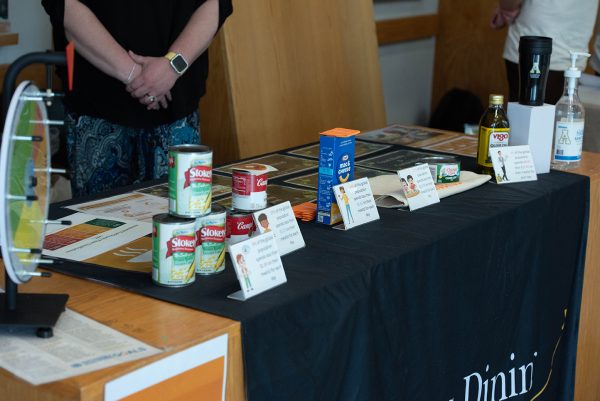
Chamberlain explained App State’s dining halls are always looking for ways to reduce waste. Some initiatives campus dining has taken are composting, sorting through waste to prevent contaminants, offering metal cutlery instead of plastic and having a reusable to-go program.
It’s not just App State offices trying to make a difference. Faculty and students were also involved in the event.
Representing the Department of Government and Justice Studies, professor of environmental politics Tatyana Ruseva shared that she is trying to raise awareness about the political realities when it comes to making a change for the environment.
Ruseva said if someone wants to make a real difference, for example changing the way one uses one’s sources or generates electricity, one needs to think about the rules that enable that type of change and consider how we can work through political institutions and political processes to change the rules in a way that they incentivize positive environmental and social change.
Sarah Widderich, a graduate student in political science with a concentration in environmental politics, shares that the government and justice studies department pushes students to pursue careers centered around making change and empowers students to fight social and climate justice.
“I hope students know that when you look at the big problems of climate change, that there is hope and you can be a part of creating actionable change,” Widderich said.

